Corporate Cardigans, Shirts & Ties, MOR, Doing Things By-The-Book... Yawn-Out-Loud - Part 1
CBS Whitfield Street (1982) and EMI Abbey Road Studios, London (1981)
Corporate Cardigans, Shirts & Ties, MOR, Doing Things By-The-Book... Yawn-Out-Loud…
Part 1 (of 3)
CBS Whitfield Street (1982) and EMI Abbey Road Studios, London (1981)
I started working at CBS London Studios, 31-37 Whitfield Street, at about the end of April 1982. I went for an interview with the studio manager a few weeks before whilst I was still working at Trident. I don’t remember his name. I just remember that he ran his own advert and jingle music production company, that he wore a cardigan over a shirt and tie, and that the interview was very formal — like I was going for a job as a junior clerk in an insurance office or something, with lots of questions about education, exams I’d passed and did I play any sports. I don’t think he asked me one question about music or my proficiency level in sound engineering or my aspirations. He did know that I’d worked at Trident for a year and a half or so, and he there and then offered me a job as a trainee sound engineer at CBS. My job at Trident was in the balance, the studio had just changed ownership, and I did not know if I would have a job there much longer, so I accepted. I had doubts from word go, the cardi was a big red flag for me, however, I just felt that at that moment I had very few other choices.
I left CBS four months later. After three months I met with the studio manager again for a formal three-month review. By that time I’d realised that this guy, even though he was the big boss, had very little to do with the day-to-day running of the studio. He was definitely more interested in his own production company. He didn’t really know who I was, and during those three months, I had not said one word to him and seen him very rarely. During my three-month review, he gave me a reprimand, spelt a few things out for me, and basically laid out a road map of how things would go for me during my next few years at CBS. The next morning, having slept on it, I handed in my resignation, and I gave the obligatory month’s notice.
Here’s why…
For a fuller taste perhaps also read these articles:
Soho, Kokomo, Backhanders, Dark Moments, & The Rabbit Punch — Part 1
Trident Studios, Soho, London (1981-1982)
Part 1 (of 3)
The Ace of Spades & The One-Arm Bandit
In 1985 I was twenty-two, living in London, working as a freelance sound engineer, clubbing almost all the time, and aspiring to be a professional musician…
I, also, am who I am because of Wham! Part 1 (of 4)
This week is more or less one year since I first posted here on Substack. I wanted to mark this with something a little bit different, and also something more personal, a glimpse into my world so to speak.
EMI Abbey Road Studios, London (1981)
During 1981, while working at Trident Studios, I found that I picked things up very fast. More or less, if you showed me something once, or I watched you do it once, or if I read a manual once, well, I remembered. If only that were true today, where I spend a considerable amount of time wondering where I left things, and trying to remember how to do stuff I’ve already done several times! Back then I was like a sponge. I was still trying to figure out which side of the glass I wanted to be on — in the control room, engineering, or in the studio, recording, or maybe, somehow, both.
Also during 1981 I met a lot of people and made many connections.
I remember one day walking along Wardour Street and seeing a guy I knew from school, Jim Hutchins, getting out of a small van. He wasn’t a school friend, he was a few years older than me, however, I caught his eye and waved hello. We got talking. He was working for his father’s sales company delivering recording tape and film stock to various studios in London, some of which were around the Soho area. I told him I was working in Trident. He asked me if I was still playing music (he remembered I’d been in a band at school that played gigs around the area). I said yes, that we’d recently got the band back together, and that we rehearsed when we could. He asked if he could hear something. Long story short, soon afterwards Jim came to a rehearsal and immediately suggested that he kind of manage us, and that he wanted us to record something professionally, and he’d arrange it all. We (my band, The Shriek) said yes. And Jim did just that. He knew someone at EMI, and in the late autumn of 1981 The Shriek was booked into EMI’s London recording studio at Abbey Road, to record, what Jim assured us was our potential first single for EMI.
At that time the Shriek was a kind of hybrid punk/indie band, with me on guitar, and three friends from school, Neil Brett (on bass), Steve Rush (on vocals), and Stuart Lawrence-Smith on drums. Steve wrote the lyrics. I wrote and arranged the music.
So, one weekend, for maybe two or three days, Jim and all of us found ourselves in Abbey Road Studio Two — the cavernous basement-like studio where The Beatles recorded Sgt. Pepper's Lonely Hearts Club Band.
Two things.
Firstly, Jim, our ‘manager’ didn’t think to bring a camera with him. Nor did any of us…
Secondly, I agreed to the session on the condition I could produce the recording. Whilst working at Trident I’d seen artists come in and produce themselves, and I wanted to do it. Jim said it would be no problem for me to do that…
So when we arrived I was in full-on producer mode. Jim introduced me to the audio engineer and explained that I wanted to produce the session. This guy looked shocked, to say the least. He was wearing a shirt and tie, was very well-spoken, quiet, painfully polite, and clearly was not expecting to be working with four very dishevelled, hung-overish, punky-looking teenagers, all reeking of tobacco and Lord knows what else. Also, nobody (i.e. Jim) had told him that I, the guitarist in the band, would be producing! He was a trainee sound engineer at EMI, I don’t remember his name. He’d agreed to do the session in his free time to be able to practice. Jim hadn’t told us that. It wasn’t a great start. Jim’s managerial communication skills obviously needed refining.
Anyway, said engineer, in his shirt and tie, meticulously set up and positioned all the mics, and painstakingly set up the recording console. He was thorough. He took a long long time… When he’d finished, I changed everything. He was not happy, he didn’t want me or anyone else touching the console or any equipment, and he and Jim went out of the control room to have a discussion. Meanwhile, I sat at said console and played around with the equalisation settings.

Eventually, Jim and the engineer came back in, and before he had a chance to say anything I made it very clear to Jim that we had an agreement, that I was there on the condition that I produced, and that’s what I was going to do. So somewhat begrudgingly the engineer got on with recording. It began as a tense day, however as things progressed we all began to get along better. It was interesting for me because this engineer, who was technically very good, basically he had a process, he’d learned a process, and he didn’t deviate from it. At Trident all of the engineers I worked with were constantly experimenting, in fact experimenting and constantly attempting to be innovative was the Trident process. So this engineer’s rigid and precise text-book approach was very unfamiliar to me. He was also so slow... I asked him how long he’d been a trainee at EMI, he said about five years. I was shocked! Five years and he’d only just started doing practice sessions… and this slowly…
At the time my job at Trident was, to say the least, unstable, and I asked this guy if there were any trainee openings at EMI studios. He said yes, they were looking for a trainee right then. I thanked him and said I might get in touch with the office about it.
Anyway, we didn’t sign to EMI, the ‘potential first single’ ended up being yet another probably un-listened-to demo cassette piled on the desk of some A&R scout at EMI Records… we never heard back from them… and Jim, well, Jim wasn’t our manager for very long after that.
Here it is, in all its glory… “I Remember” by The Shriek, recorded in Abbey Road Studio Two in November (I think) 1981…
At the end of 1981 and the first part of 1982, I’d been asking around about other studios that might need an assistant engineer (as opposed to a tape operator or a trainee). More or less, the feedback I got was that none of the big established label-based studios (so like EMI’s Abbey Road) would employ a slightly experienced novice assistant engineer, ideally, they’d want to take on a novice trainee and train them from scratch, and it could take years. The exceptions to this were the independent studios (like Ian Anderson’s Maison Rouge Studios), or the studios owned by or affiliated with the less conservative record companies (like Island’s Basing Street Studios). However, these studios would only take on freelance assistant engineers, on a job-by-job basis, so no contracts, and no security from one month to another. And you had to be good at what you did, you had to be competent. I decided to contact a few of these studios and see what was possible.
Maybe in February or March 1982, I heard about a job going at CBS’s London Studios in Whitfield Street. I’d been to Maison Rouge and met Tony Taverner and I’d also been to Basing Steet Studios and met the manager (I can’t remember the name). It was like I’d been told. They’d take a risk on me once, I’d be immediately hands-on the console etc, and if I fucked up I’d be immediately out. If didn’t fuck up, they’d be in contact as and when they needed me. Maison Rouge had a lot of work in the diary, and Tony was confident he could give me work all the time if I wanted it. At Basing Street things were a little more vague and their diary was not so chocka. The key thing was that they would both pay by the hour, they’d pay overtime, and even double overtime after a certain amount of hours per week, and their basic hourly rate was four times more than I would get as an in-house trainee elsewhere. Additionally, I’d have to pay my own taxes and social security, I’d need a bookkeeper or an accountant, and I could basically choose when I worked, and when I didn’t… It sounded amazing…
But I played safe and eventually took the job as a trainee, starting from ground zero, at CBS Whitfield Street. Oh, and I chose CBS Whitfield Street, and not EMI Abbey Road, because it was more practical, it was closer to where I was now living in South London, in Kennington, from where it was direct and only five stops on the Tube (Abbey road was about ten stops, with at least one change).
I’d record at least one more time in the future at Abbey Road, in 1985, with the legendary Hazel O'Connor and Chris Thompson (from Manfred Mann’s Earth Band) but I’ll save that for now.
Yep, CBS Whitfield Street it was, I’d taken my first adult decision… I’d played safe, and chosen practically… now all I needed was a cardigan!
To be continued in parts 2 and 3
Please note: I have another infotainment channel on Substack, called Unleashed & Unlimited, where I post podcasts, articles and content unrelated to music.🖋🎥🎙


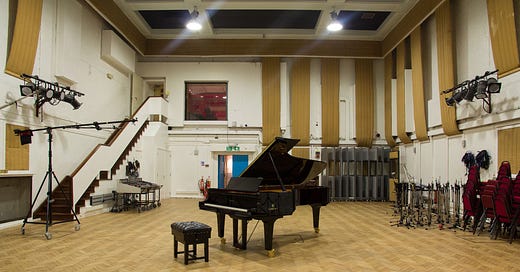



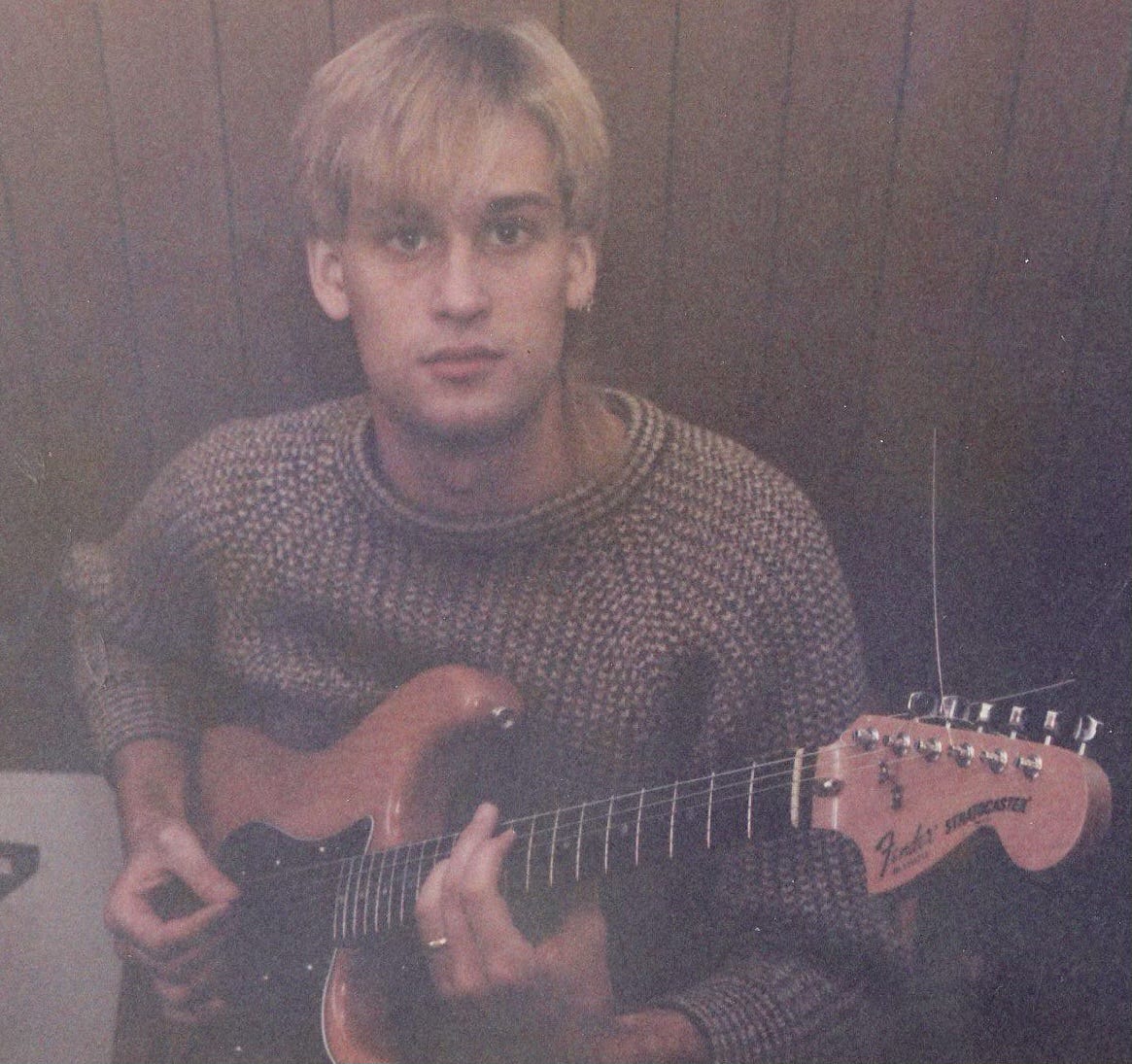

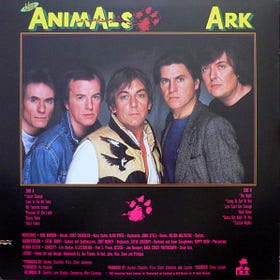
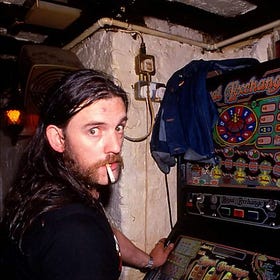
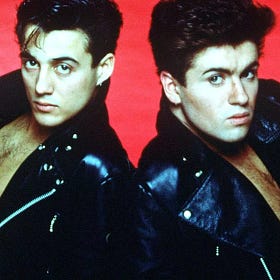


BTW the name ‘The Shriek’ was inspired by the painting ‘The Scream’ by the Norwegian artist Edvard Munch. ‘Scream’ in Norwegian is ‘Skrik’. Sounds like ‘Screech’ but we preferred ’Shriek’ 🤷♂️
Love the name.....The Shriek. If I was your manager at the time, I'd have suggested spelling it, The Shreek. It's eye-catching, avoids the press transposing the "i" and the "e" (oh, it would've happened!), plus you've got an "eeeeee" in the word, like there should be in an audible shriek! In fact, had a logo ensued, the two "e"s could be stylized to look like frightened eyes! Shoulda found me....I was in L.A. at the time!!! You and me....we coulda gone far!😁👍And, I wouldn't have worn a cardigan over a tie!
I liked the song...seemed very of-the-decade! Amazing stories, Nic! If others are like me ('cause I know I'm doing it as I read), we're sizing up our early lives/careers, and comparing your initiative, drive, and confidence with ours in our early 20s (if not late teens)!